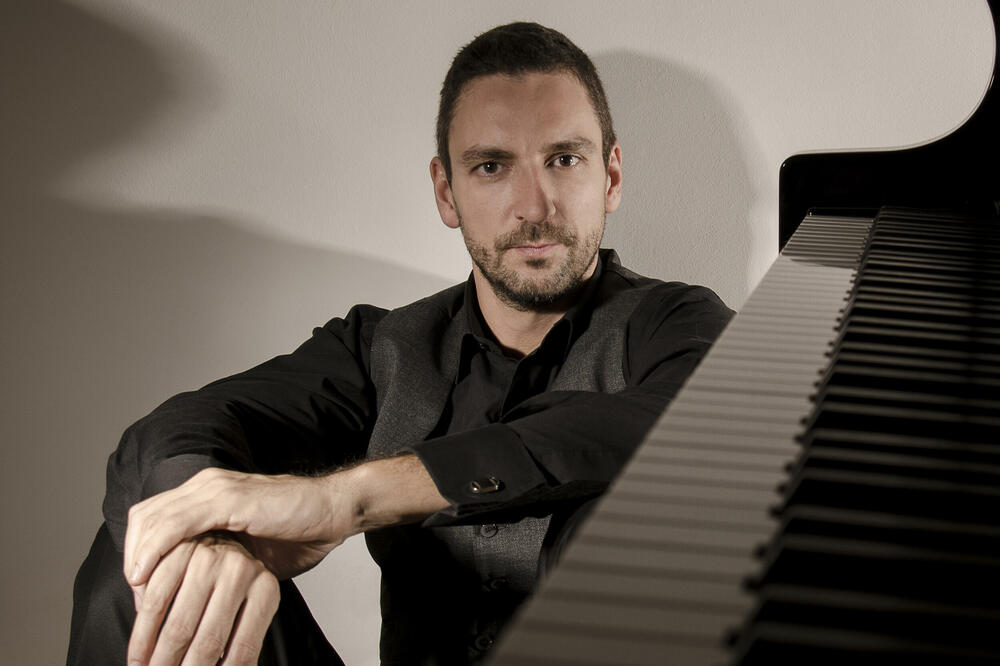KotorArt is a manifestation of special importance for the culture of Montenegro. This category itself implies the obligation to spread the national culture, preserve its heritage, initiate and promote contemporary creativity, affirm Montenegrin artists alongside the world's artistic elite, but also support young talents.
More than 20 festival years have passed in various trials, adventures and creative plans. Every year, through a combination of different genres and arts, the festival developed the idea of national identity, fulfilled its social mission, actively reflected on current topics, expanded its programming, the number of new stages, partners, sponsors, audiences, representation in the media, included in new social platforms , became one of the most visited cultural events in the region. At the same time, the artistic and technical "ensemble" of KotorArt itself grew, which forms and writes the chronicle of the authentic festival and the culture of our time, contributes to international recognition, economic profitability, and strengthening of the local community.
Ratimir Martinović, the first man of KotorArt, emphasizes that all these topics are discussed at formal and informal meetings of the international festival team, and that the positions he presents are built on the foundations of analysis and conclusions, and concern not only the thinking and planning of the KotorArt festival, but also current events on the cultural, social and political scene of Montenegro.
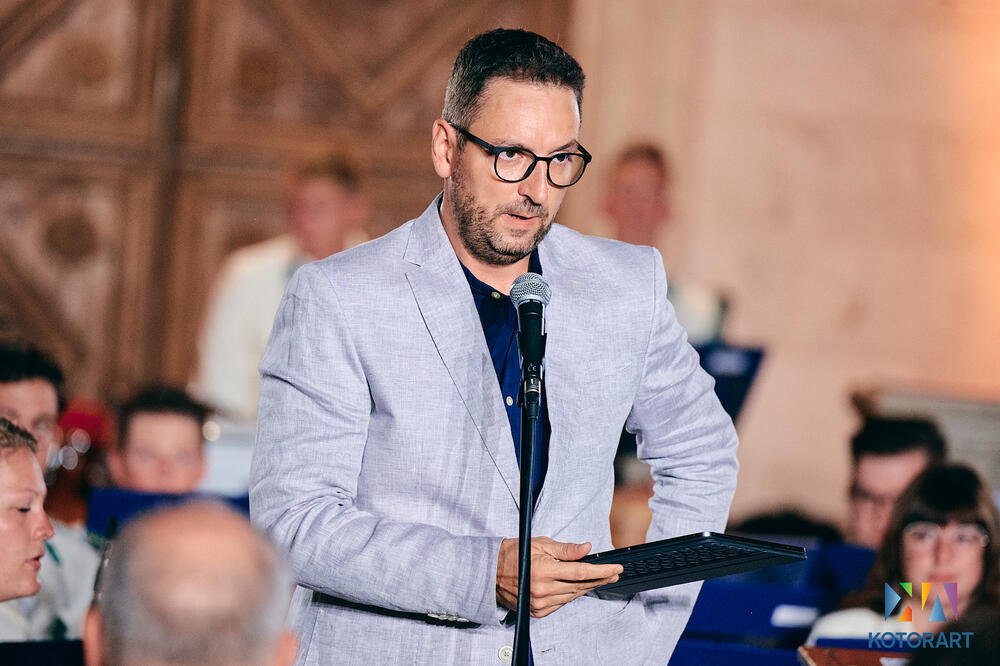
You are the founder and director of the KotorArt International Festival. What will the festival offer the audience this year?
We often say that KotorArt is artistically relevant, socially responsible and tourist attractive. It's the same this year. From a program of excellent soloists and ensembles from the country, the region and the world, performances by young musicians, to a forum of young talents scattered around the world who, when there is no one else, we encourage and guide them to articulate critical reflections. There is also the Philosopher's Square, which this year focuses on women's rights. Almost every evening is filled with quality concerts of various genres, from jazz to klapa songs. Over the course of two decades, KotorArt has become one of the brands of Montenegrin culture, primarily seeking its place in the region and the world. The city of Kotor certainly deserves such an ambition. Current and dynamic festival concepts and some of the most famous artists of our time have contributed to our reputation, such as Penderecki, Majsko, Matsuev, Pogorelić and many others who are present on the European and world music scene. As a festival of national importance, KotorArt promotes national values, musical heritage, original creativity and Montenegrin artists this year as well, alongside the world's artistic elite.
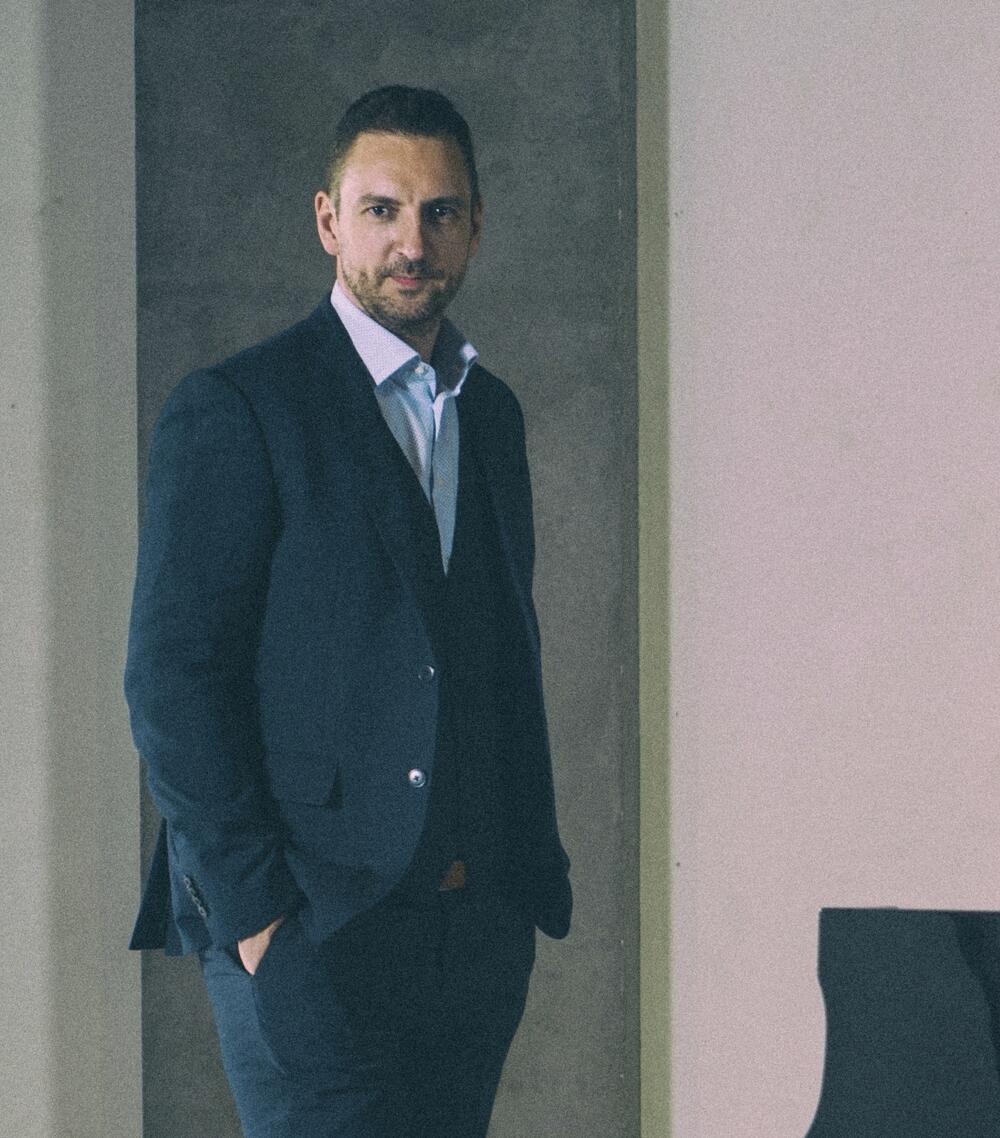
What is the current internal organization of KotorArt? How do you see the position of KotorArt within the Montenegrin festival and cultural scene, and among festivals in the region?
KotorArt as an organization was created in 2002. We received the status of a festival of national importance in 2009, we had different segments, some of which were short-term projects without a sustainability plan. Today, KotorArt has returned to its musical beginnings. I understood that there is already an agreement that the Festival of Theater for Children will also receive the status of a festival of national importance. Apart from the fact that our festival has no competition in the local framework in terms of the favor of sponsors, domestic and international partners or the patronage of UNESCO, it is becoming very relevant in the regional and world framework in terms of the development of partnership cooperation. We provide more than half of the total budget independently, through projects, contests, partnerships, donations and ticket sales. The ratio of spending money is 80:20 in favor of program content, which is inversely proportional to public institutions, such as city cultural centers, which spend this majority percentage on administration.
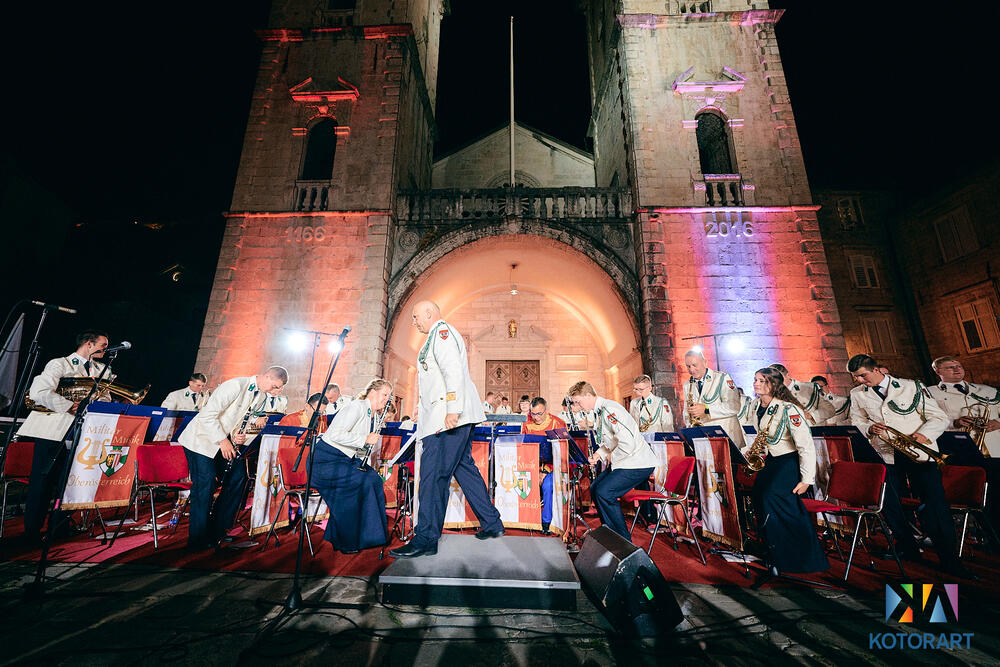
The impression is that the entire non-existent festival network resembles the overall cultural scene of Montenegro - fragmented, insufficiently inventive, anachronistic, insufficiently engaged. Of course, Montenegrin culture lacks funds and managerial personnel, but above all, there is a lack of good, long-term sustainable ideas. I don't mean artists. We export domestic talents free of charge without hesitation, thought and responsibility, that is, we give them to others to valorize them. The existing means can provide a much better generation of that creative potential, greater agility and engagement of the entire culture sector. Fragmentation of the cultural scene is promoted as a strategy through civil sector competitions, and the attitude of the relevant Ministry is disappointing, from the aspect of strategic projects and ideas, respect for the profession, staffing and the aforementioned networking. For topics that are nationally important and have the potential to be at least partly self-sustaining, the only long-term sustainable model is a combination of the public, civil and private sectors. It's no hot water invention. We have practices from around the world. In this regard, we will agree that culture is not consumption but investment, but also that there is no smart investment without the vision of those who make decisions. The lives of existing creative hubs in the country vividly speak of the lack of that vision.
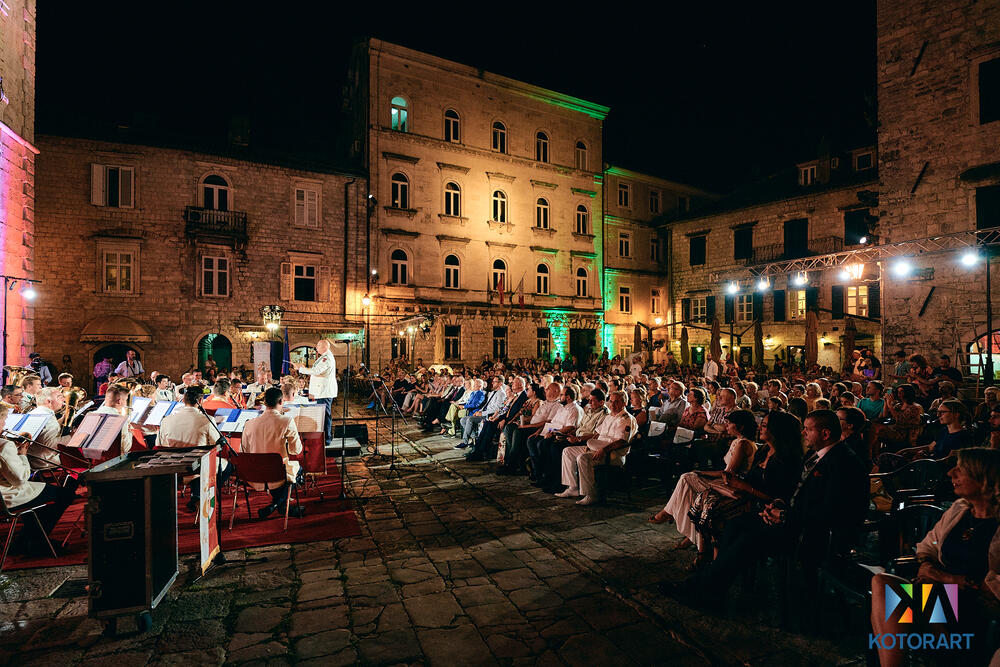
As for the festival's position in the region, I can mention our two regional projects, worth a total of one and a half million euros, which were supported by the European Union. The three-year project #synergy, which we designed and as the first leader of a European cultural project in the country to receive funding from Creative Europe, closely binds partners in a high-quality musical story of intertwining people, cities and festivals. In addition to KotorArt, there is the Ljubljana Festival, Belgrade Festival Center, Dubrovnik Summer Games, and festivals in Pristina and Tirana. This year, the project is entering its final stage, with 12 new compositions and the same number of concerts at the aforementioned festivals, with around 30 performers and composers from all six participating countries. The second project is the Youth Orchestra of the Western Balkans, which is starting to be implemented this year. Besides everything else I could say, I think these two projects give an image of our place, and more importantly, the connection with regional festivals.
When you talk about the Ministry of Culture, you addressed a letter to him with the proposal that prominent Russian cellist Dmitri Prokofiev obtain Montenegrin citizenship. Did you get an answer?
Now the ninth month goes by without any response. The same is the case with last year's petition related to the issue of heritage, with over 1000 signatures. I do not consider this to be adequate communication, as should be fostered by the Ministry of Culture and Media. At the same time, I am sad that the Music Center, of which Dima was the first cellist for many years, did not officially announce at least some letter of support for its talented former member. All colleagues know what kind of musician he is and how much they learned playing with him. Or the Academy of Music, where he taught. And that says something about the state of the culture, but even more about a mentality that is careless and ungrateful towards many values. However, we will not give up, because we believe that Montenegro will one day embrace those who contribute to its values. Now we will also send the request to the president (to Jacob) Milatović.
A journalist from Radio Montenegro managed to find out something about this topic from the Ministry of Culture and Media. The Ministry says that "for such an important issue, it is necessary to consult more experts and professionals on the cultural scene". For me, this is a crystal clear admission from the Ministry that they do not have the competence to evaluate this proposal within the existing organization. As far as I know, there is a music advisor employed in the Ministry. The National Council for Culture was also formed with By Miloš (Karadaglić) of the A novel (Simovic) as members. Were they consulted on this topic, did they ever meet at all? I'm afraid that the situation is similar wherever you scratch in the cultural sector. The National Office for Cooperation with UNESCO, with the abolished post of Secretary General, or the National Commission for UNESCO, which has not held a single meeting since its establishment. So, UNESCO, that's one of the topics. The Music and Ballet Center, the Museum of Contemporary Art, the "European Capital of Culture Budva and Boka 2028", these are all topics for which I am afraid the same principles of the Ministry's work as in the cases I have described apply. By the way, I don't know if there is an awareness that if the candidacy for EPK 2028 passes in the second half of this year, it will cost the state huge millions of euros of public money. Excellent. But, as it is known that after some Olympics, stadiums, road infrastructure and various objects of future public purpose remain, it should be known in time what is planned to be left after 2028. And that is why it would be good if, without too many marketing phrases and festival fireworks, as soon as possible they hear the programmatic and infrastructural pillars of this project sooner, so that later it is not too late. I guess it is clear that especially the coast does not need another, too expensive and colorful manifestation, especially not with a year-round duration, but concrete, long-term and development benefits for the culture of Kotor, Budva, Herceg Novi and Tivat, which are reflected in the establishment of a permanent system, organization, criteria, programs and infrastructure. Some European cities got seriously burned with the EPK title. It is smart to learn from the experience of others, which was discussed at KotorArt in 2021.
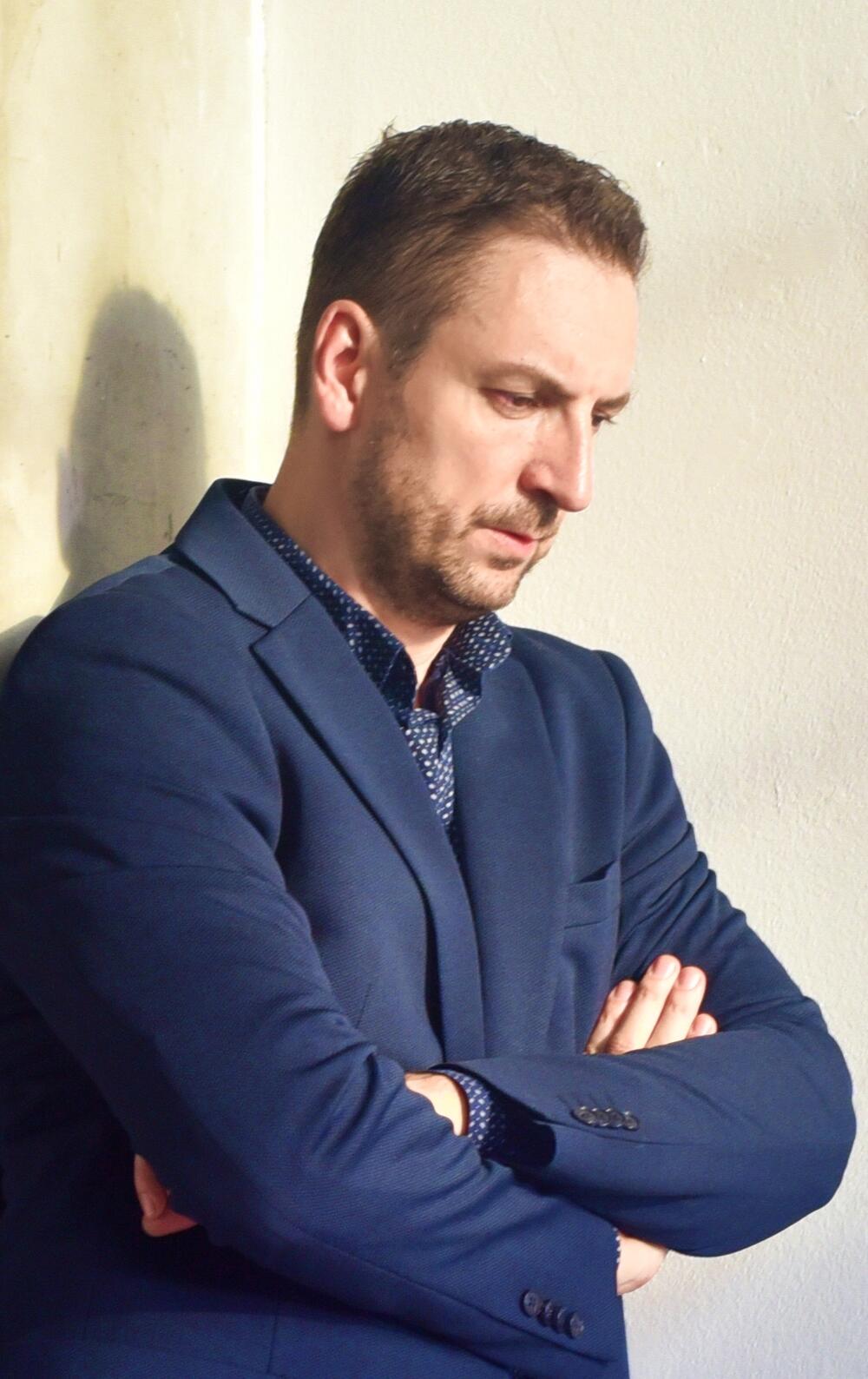
The topic, as you can see, has a lot, but there is a lack of responsibility, efficiency and, by your own admission, competence. To be perfectly clear - I have hardly met the current leading persons from the Ministry, nor am I particularly interested in personal acquaintances in the context of public responsibility. I still have some kind of hope, "sorghum sad" hope, that in all the global adversities, Montenegro as a small, resource-rich, beautiful and well-positioned country, even during the current millennium, will find the wits and strength to fight for a slightly more orderly society. In that hope, culture is not just a "department", but a factor in all spheres of activity.
Last year, you harshly criticized the actions of the director of the Music Center of Montenegro. Have you achieved communication and cooperation in the meantime?
We didn't, and I wouldn't waste too many words on that. But of course I follow the activity of that center. And I congratulate the musicians on the positive steps forward. It is clear that the director of the Music Center was protected by the leaders of the Ministry of Culture and Media, and it has been going on like this for some time in this society. It was the same with the previous director, whose name even in the sphere of culture today few people remember, and even less of her effects. The conclusion of non-critical protection is based on the ignoring of the public and the profession by the competent authorities. The Ministry had to respond to the lawsuits of most of the center's employees since last spring, or to internal letters from experts of the Ministry itself about problems in the Music Center's work. Why experts in the Ministries if we do not respect their position? It is incredible with what ease and frivolity serious topics for the culture of a country, such as the issue of the institutionalization of ballet art, are resolved. The Elaboration and the Decision on the establishment of the Music Center define what the center does. Changing the Statute, in accordance with its previous violations, cannot hide wrong decisions. It is enough to look only at practices from the region or the world, where, due to its specificity, ballet is always associated with national theaters and not with national orchestras. The school "Vasa Pavić" and the private school "Princeza Ksenija", among others, have long been involved in ballet art. Has anyone in charge invited the representatives of those institutions to a discussion on this topic? I hope that the decisions regarding the ballet in the Music Center will be revised as soon as possible. At the same time, it happens that some of the most qualified and capable people are fired from our central institution of musical art, and prominent creators are removed from the Council because they think differently. If we are not able to hear a different point of view and think critically about our decisions, then I am afraid we are not able to communicate fundamentally.
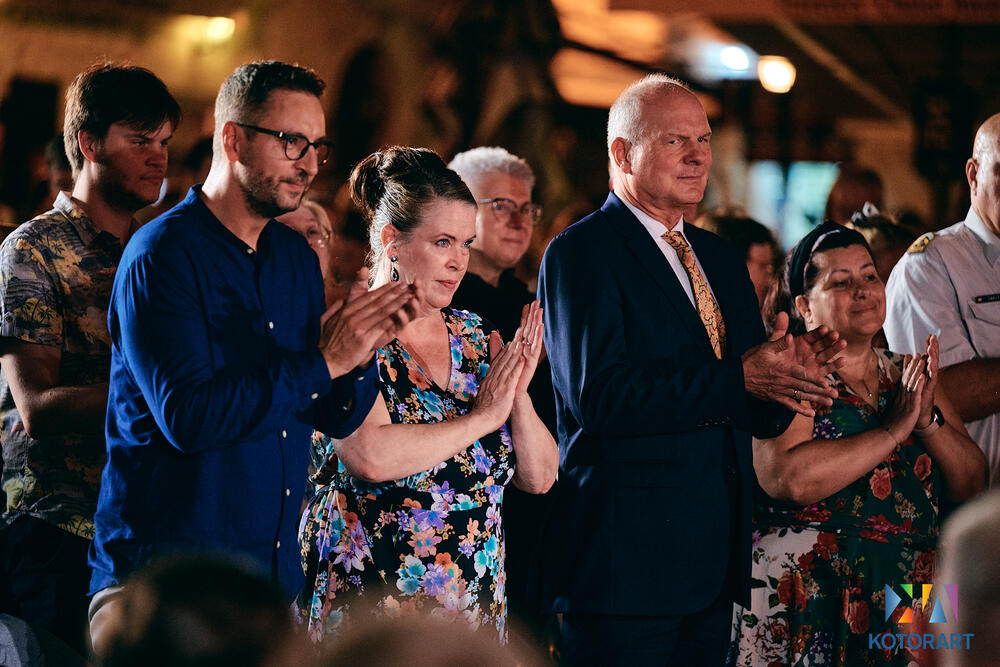
Let's go back to KotorArt. Opening on National Day was entrusted to violinist Nemanja Radulović. In previous years, Montenegrin artists performed on that date and Montenegrin themes were present. Is Nemanja's guest appearance in line with the importance of this date?
Absolutely. Different concepts of past openings included both domestic and international artistic forces, regardless of the fact that patriotism is a used term in Montenegrin circumstances. Nemanja is an artist of great international reputation, a true musical star, a frequent and dear guest of our festival. His art and the program of the concert "Around the World", even in the title itself, provide a complementary and affirmative context for the Day of Statehood.
And in 2017, when I canceled my participation in a concert in Belgrade on the occasion of Independence Day, there were calls from professional patriots. Of course, anything is possible, when it is spun and there is no critical awareness. As he said Rambo amadeus - nationalism is a topic dealt with by those with a salary of 300 euros. Since today's minimum wage is 450 euros, I don't know if Rambo would have to correct the figure or if the situation with topics is still a little better. Love for the homeland is proven concretely - from throwing garbage in the container, not through the window, to working for the welfare of society, and not only in one's own interest. Not to quote too much, quote worthy, Ršumović with a homeland that "defends itself with honor and knowledge, beauty, life and good education". Maybe my recital this year with the works of the Serbian composer Vasilija Mokranjac or the invitation we sent to President Milatović for the patronage of an exhibition, may again call into question our patriotism? Everything is possible when you want. That slogan takes on a creepy new meaning.
But I want to say something more about the mentioned exhibition because I consider it worthy of attention.
We wanted to organize a photo exhibition for a long time Pava Urbana. It is about a series of photographs that this young man from Dubrovnik took during the attack on Dubrovnik in 1991-92. years. His last photographs, during the shelling of Stradun during which he was killed, represent a dramatic artistic testimony of a terrible time and a senseless act. A meaningful relationship with the past is important and constitutes a culture of memory. Our plan was to stage the exhibition in Kotor, in 2016, on the occasion of the 25th anniversary of the siege of Dubrovnik, with the desire that it would be symbolically presented in the age-old Reconciliation Hall on the island of Our Lady of Škrpjela. The state leadership at the time did not respond to this plan of ours. I remember lively discussions with European and American diplomats on the subject of the exhibition. The Germans, of course, understood very well what was at stake. An artistic event of such profile and importance can only take place with the patronage of a prominent Montenegrin official. We have now sent that invitation to President Milatović, because we felt that he is open to topics from our past and because we believe in the importance and effectiveness of memory culture projects for Montenegro and the entire Balkans.
We witness different examples on all sides and levels. I received an unofficial reply from the Dubrovnik Summer Festival that the proposal of my all-night recital with the works of the aforementioned Vasilij Mokranjec, on the occasion of the centenary of his birth, is possibly politically problematic. I will remind you that in the middle of Durmitor we have the official opening of the Wild Beauty Art festival with the Zagreb soloists, followed by the Croatian klapa Cambi, and the finale in August will be marked by the German State Youth Jazz Orchestra and the Beogradanka Bilja Krstić and the Bistrik Orchestra.
So, the festivals that I organize, with selected programs, nurture the practices that I talked about. And the KotorArt opening ceremony itself testifies to that. The cathedral bells at the opening ceremony are not only a symbol of the beginning of the musical celebration. During the concert of the Zagreb Philharmonic in 2003, Don Branko invited that instead of music and speeches, the festival should be opened by the bells of the Cathedral of St. Tripun, the patron saint of Kotor, "as an invitation to forgiveness, reconciliation and love".
When you talk about reconciliation, this year KotorArt presents another engaging piece. It is a staged reading of the dramatic text "The Conspirators", authored by Vladimir Arsenijević and Igor Štiks, directed by Boris Liješević and co-produced by the Krokodil Association, the My Balcans Foundation and Terra Solidare. What is it about?
Before "The Conspirator", I would like to mention the Darinka Matić Marović Award and the program "Vox Feminae", which deals with the position of women in Montenegrin society, as well as the project "From virgin to maestra", which we are preparing. Dara was the first female dean and rector in Belgrade, at the same time conducting with enormous success the female academic choir "Collegium Musicum" around the world. She was also born in the same year Stana Cerovic, officially the last Montenegrin virgin. The life path of these two women, born at the same time, in the same country, at a distance of only a hundred kilometers, is frighteningly different. We want to better understand and shed additional light on that chasm between two conflicting experiences and the life of a woman. One, who experienced worldwide success as a woman, at that time, in an almost exclusively "male" profession, and the other, who canceled almost all attributes of a woman in herself, in order to be "masculine". Prominent women from Montenegro and the region will deal with these topics.
And when it comes to "Conspirators", I will again start with the native Kotoranka, Borke Pavićević who in Belgrade, where she lived, was extremely engaged, especially during the unfortunate nineties, through the activities of her Center for Cultural Decontamination. She is one of the characters of this theatrical story, unencumbered by aesthetics, stage and acting, in which the times and thoughts of different writers and intellectuals intertwine as if in a dream. There are also Danilo Kiš, Predrag Matvejević, Miroslav Krleža, Mirko Kovač, Svetlana Slapšak, Bogdan Bogdanović and others. The entire text talks about the evil that has happened to the Balkans in recent decades, about the importance of the supranational in these divided, yet our areas, and above all about the conspiracy for a better future.
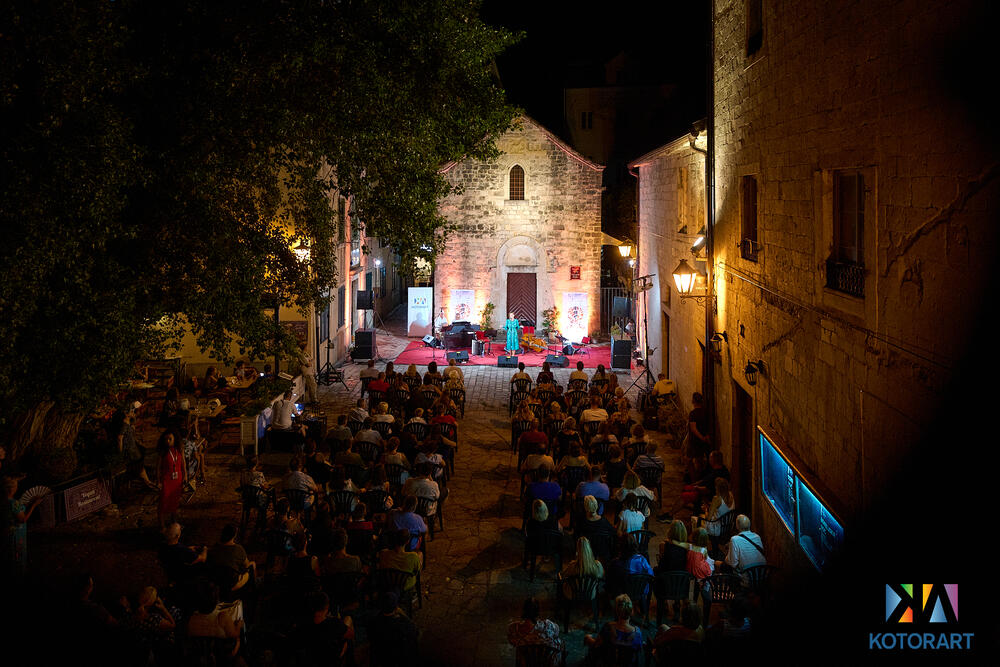
So here's to the end, on the topic of a better future - if you could, what kind of conspiracies and conspiracies would you make?
Conspiracies - there is finally space for creation and free imagination! For that I need space for at least one more interview.
I would gather the conspirators around the irresponsible and rude, the ignorant and conceited. Because, contrary to the saying, there is still more intelligence than luck here. Intelligence in individuals, and misfortunes in collectivities, so it is an optical illusion that there are more of the latter.
I would gather conspirators to kidnap the world's best cinematographers, bring them to some secret location and make them make a thirteen-hour animated film about the origin and development of life on the Montenegrin karst. About all the black holes of the Montenegrin cosmos and the local Monti Python ghettos of colorful madness. So, in terms of genre, they turned it all into a cartoon, and not an action psycho-horror thriller. Children should be thought of. However, the title can remain "The Hand of Justice".
I would gather the conspirators to put Buksov in front of the fait accompli - or to agree to a blindfold, that is. that they can only tactilely choose extras for new commercials for fluorescent swimsuits or... nothing of the finished act.
I would gather conspirators to plant hundreds of thousands of olive trees and create an arboretum, two botanical gardens, and a flower festival every July 12, for my mother.
I would gather the conspirators to steal the Thirteenth of July award, scrub it well and dry it, and leave it in a hidden place, so that it can rest well for at least a couple of years. During that time, we would force the few remaining brains in this country to tailor criteria according to which, among other things, citizens would physically and mentally prepare to collectively abstain from the award, but also from various other diplomas, awards, graduations, etc. at least those few years between the awarding and the recovery period of the awards themselves. For the Thirteenth of July, we would strictly prohibit the transformation of winners into badges on the lapels of those who award them, especially when they themselves wish to do so. It is also important for morale in society.
And every 13th of the month, as part of the year-long preparation for the most solemn celebration of July 13th ever, I would gather conspirators to organize blockades, protests, sabotage, interruptions of telephone networks, power cuts, water cuts, and if by then some models of causing weather disasters are personalized and the like, so that at least one per mille and once a month we experience that abyss between the senselessness of ameboid and all kinds of flattened lives of today and the oppression of those whose accomplishments we so easily simulate and to which we even more easily swear.
There's a lot more, but I'm afraid this is too much for a happier National Day.
Bonus video:



